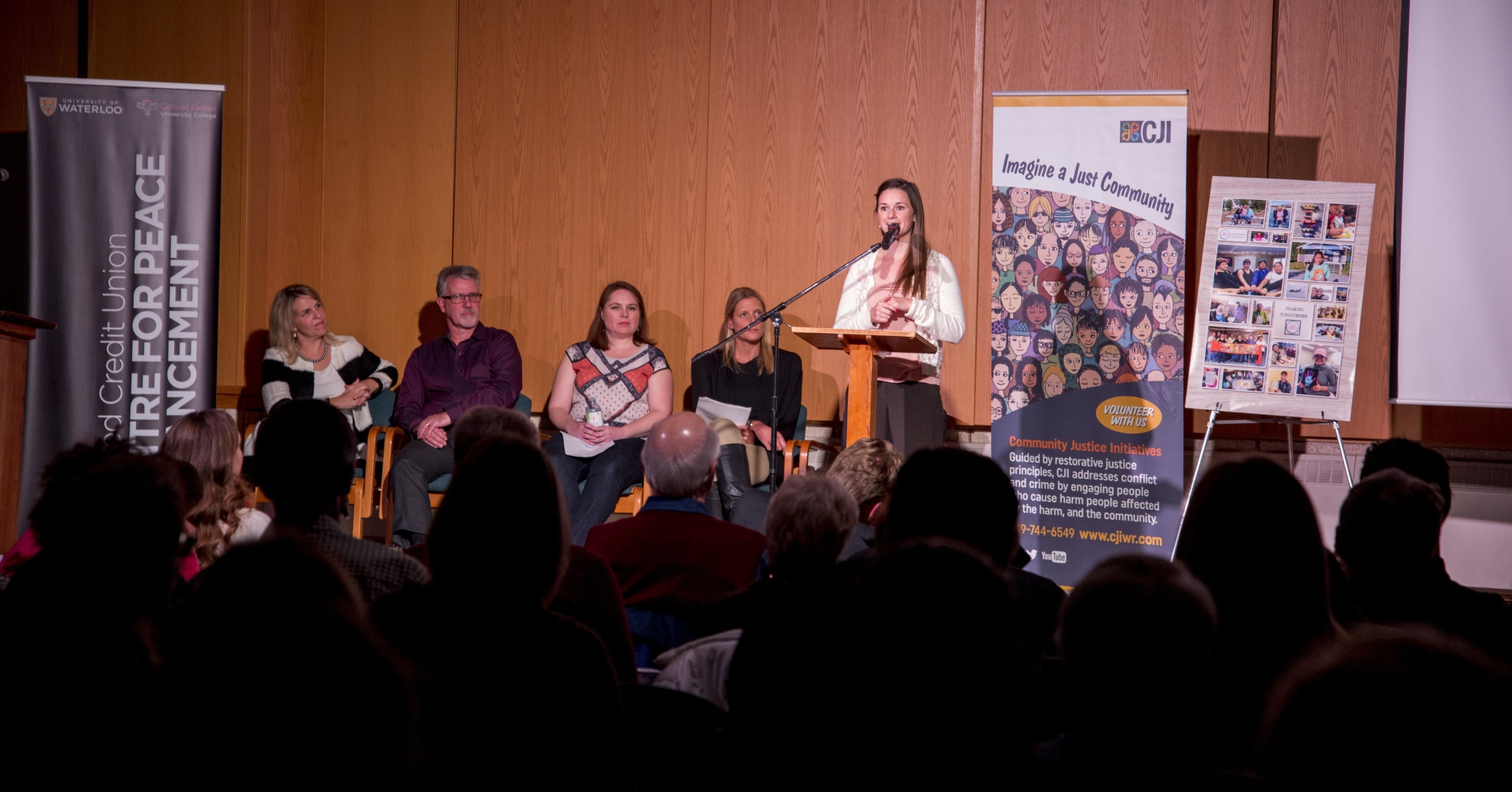By Michelle Jackett, the coordinator of the Kindred Credit Union Centre for Peace Advancement. This article appeared in the December 2nd edition of The Record.
The Canadian government is committed to making our country a global innovation leader. And so perhaps it isn’t surprising that Correctional Services Canada has embraced the theme “Inspiring Innovation” for Restorative Justice Week 2016.
This is something Waterloo region can get on board with!
After all, this community is known as the birthplace of the modern restorative justice movement. During last year’s Restorative Justice Week, hundreds gathered at the Apollo Cinema to watch a documentary marking the 40th anniversary of what is affectionately known worldwide as “The Elmira Story.”
The principles that led probation officer Mark Yantzi to imagine a new approach to restoring justice—principles like community ownership of harm, the centrality of the voices of those most impacted, and meaningful accountability—are still guiding practice today, decades later.
This local innovation has spread across the country and around the world, finding its way into neighbourhood initiatives and criminal justice systems, and making countless communities healthier and safer.
But this story of inspiring innovation is not over. In fact, I think it is just getting started!
Not only is this region home to an innovation ecosystem for the high tech sector that is second to none, it is home to an ecosystem—or better, a community—that continues to spark, nourish, and launch new approaches to restorative justice.
Community members with a wide range of backgrounds are continuing to apply their creativity and skills to building safer communities. An event on November 23rd at Conrad Grebel University College shone a spotlight on six of these exciting new initiatives.

For example, the Waterloo Catholic District School Board is introducing its students to restorative practices that promote safety and inclusion in their school communities.
Theatre of the Beat, a local theatre company, has developed a program to help women at Grand Valley Institution for Women tell their stories and imagine new ways of being.
And the Region’s first Restorative Justice agency, Community Justice Initiatives, also continues to break new ground with programs to meet the emerging needs of this community, including Blended Peer Support Groups for men who have both experienced and caused sexual harm.
Whether you define restorative justice as a grassroots initiative, a set of practices, or a worldview, there is no denying that it is, and must continue to be, a living movement.
Even as it draws its strength from guiding principles laid out in the 1970s, the field continues to thrive.
Michelle Jackett is the Coordinator of the Kindred Credit Union Centre for Peace Advancement, and co-teaches a Peace and Conflict Studies course in Restorative Justice at Conrad Grebel University College.
See more photos from the event here.